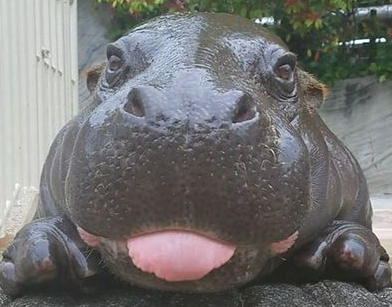In my fourth year of my PhD on schizophrenia and I'm currently writing up my thesis. I'm procrastinating right now so thought I'd do something useful with what I've been studying.
And no, schizophrenia is not multiple personality disorder.
Edit: I have to get dinner and run some errands. I'm really enjoying this so I will definitely get back and answer the rest of the questions.
It feels bad to ask this, but I genuinely see this advice all the time. If you ask if you're schizophrenic, people on the internet will always tell you "no, you're not because you're wondering if your schizophrenic." That's insane bullshit right, or is there some truth to that? It seems absolutely impossible that schizophrenic people are completely unaware of their condition or introspecting on themselves! but somehow I see that repeated everywhere.
not op or an expert but this is absolutely incorrect. Plenty of people with schizophrenia are cognizant of their condition. These people are conflating "schizophrenic" with "in the midst of a psychotic episode". And even within a psychotic episode you can retain a (variable) degree of lucidity.
There are a lot of people with schizophrenia who have poor insight- in my unscientific opinion, it certainly seems to be more than for other disorders. Like, I work with a guy who conceptualizes hearing voices as "people talking in the hallway".
But that's certainly not everyone with psychosis. And IME, even people who "lack insight" into the symptoms themselves have a lot of insight into how those symptoms affect their functioning- they just don't think about those symptoms as being different from the typical experience.
I think the reason that this advice is repeated so often is because so many people who just have run-of-the-mill anxiety tend to perceive themselves as "losing their mind" and start attributing relatively common things (like seeing/hearing things just before falling asleep) to schizophrenia. It's not that people with schizophrenia can't tell they have it, it's that so many people who think that they do are really just catastrophizing. Statistically speaking, if you think that you have schizophrenia, you almost certainly just have anxiety. You should see a therapist/psychiatrist either way though.
Oh yeah for sure. Diagnosing yourself with anything like that over the internet is asking for trouble.
I've heard it's possible to "activate" schizophrenia using psychedelics. How likely is this to occur and what are the mechanics behind it?
For some drugs, its possible to trigger psychotic episodes (such as from meth, lsd etc.). Whether or not you can trigger schizophrenia, there is some evidence that those who have a genetic inclination have "triggered" it from smoking pot. It's quite rare, and the mechanics behind it aren't really known. To be honest, the main thing I learnt about schizophrenia from doing the PhD is that "we don't know shit about schizphrenia" haha.
A family member supposedly had this (On the other hand he was a lawyer working 22 hour days and was smoking pot full time because he was in the early stages of having a nervous breakdown, so not exactly a non-confounded test case.)
That said, pot has an immediate and very bad effect on me so I stay the hell away from it and just try to locate where the ecstasy is, so maybe there is something to the genetic disposition.
Yea, that doesn't sound like a good recipe for mental health. I avoid pot too, after having a particularly bad experience a couple of years ago. Wasn't really psychotic, but my entire body started getting weird sensations and half my field of vision turned red. I can't smoke without experiencing anxiety now, so I've just stopped.
My brother in law experiences extreme paranoia and some delusions associated with it but is so fearful of medical professionals that he cannot be diagnosed. What's the best way to support him?
I don't think you would want to push him too hard since that might alienate you from him. If I were in that situation, I would probably speak with a health professional about it. If the extreme paranoia and delusions are really affecting his life, then that's what I would definitely do.
Don't directly challenge him on the delusions. It won't work and it will just push him away.
@Orannis62 already posted a really informative comment about it. I would just like to add that a huge part of the focus is on the symptoms particularly because we don't have a good understanding as to what schizophrenia really is. There are different ways in which schizophrenia presents itself. In our lab meeting today, we wondered if the category "schizophrenia" is even useful anymore.
For example, the philosopher/phenomenologist Shaun Gallagher has asked several important questions like, "Why do schizophrenics experience some inner speech as an auditory hallucination and some not?" Now, this rests on the assumption that some auditory hallucinations (like thought echo) are actually a confusion about where inner speech comes from (incorrectly perceiving/thinking it as coming from an external source). Another important question is, "Why do some schizophrenia patients experience delusions of control and another type of First Rank Symptom?"
Not the OP, but I go a bit into what goes into schizophrenia besides hallucinations in this comment. Does that answer your question?
Yeah I have no clue what it actually is apart from maybe some hallucinations- of which I'm not quite sure how much the person with Schizophrenia knows it is a hallucination.
Generally, a person who has schizophrenia will display what's called First Rank Symptoms. These are symptoms (such as delusions of control) that were identified by Kurt Schneider who thought that they most characterised schizophrenia. Generally, even having one of these symptoms will be enough to be diagnosed with schizophrenia (at least where I'm from in Australia).
Unfortunately, you can't identify it in the same way as say, Huntington's Disease. When someone has schizophrenia, most of them go through what's call a "prodromal phase", where they start to have cognitive symptoms (such as memory issues) or to develop some signs of delusion-like thoughts. Eventually, what happens is that this develops into a full-blown psychotic episode, requiring hospitalisation. This is where schizophrenia is usually identified.
Is paranoid schizophrenia still a thing or was that like discontinued in the 90s or whatever.
And what do you call people with diagnosed schizophrenia that are legit paranoid as their condition, like they think everyone is out to get them and end up in mental health jail because they are literally attacking people.
So at least here in Australia, we don't really use categories like paranoid schizophrenia anymore (although at my lab meeting today, we were discussing whether it was useful to have these categories, since schizophrenia appearance is so heterogeneous).
For the second Q, we just call them schizophrenic. It's very rare for them to attack people. For the vast majority of cases, it's an inward problem that'll cause them to withdraw.
are the symptoms of schizophrenia culturally determined? for example, iirc some schizophrenics think they can talk to God, but that is only possible in a society so saturated with God talk as ours.If so, is it possible to find a treatment that works for schizophrenics worldwide or would every treatment suited to the cultural context of the patient? Does it even matter?
Yes, the linked article already shows a good example of it. If by treatment, then it depends on what you by treatment. The sad fact is that we don't really understand the mechanisms of schizophrenia and what causes it so we don't have anything that comes close to curing it. Medications are usually just formulated to stop symptoms but end up just shutting down a lot of the brain (hence why so many patients experience non-stop brain fog and why eventually, many will hop off medication).
However, some types of treatment (for example, types of CBT treatments) try to just help patients cope with their symptoms. It's here where I think that the type of voice they hear would be important. If voices are mostly positive and accepted, it would approached differently and would probably be much easier to help than people in the US who only hear hostile voices. I really like the point in the article, how the whole conception of schizophrenia (in the West) as some horrific mental disease might contribute towards the negative voices US schizophrenia patients hear.
https://news.stanford.edu/2014/07/16/voices-culture-luhrmann-071614/
in the United States, the voices are harsh and threatening; in Africa and India, they are more benign and playful.
The US fucking fails even in that regard, impressive.
I remember hearing this about ghosts as well. It makes sense they're related, but in America ghosts are also uniquely malicious and in most cultures they're kind and usually a dead relative or friend.
IME that's more a matter of stigma. People in the US who hear voices in a way that isn't immediately threatening are less likely to tell others about it because of the stigma around hearing voices.
Not always in the same ways, though that's changing as American cultural hegemony gets more and more ingrained.
Were there any recent-ish advancements in understanding/treatment in general? Without doxxing yourself ofc
I'm less familiar with the psychiatric side of it, although I have done a project with a psychiatric team. Honestly, as far as I know, there has been very little advances in treating schizophrenia. Most treatment (involving medication) pretty much just blasts the brain and shuts it down (hence why a lot of patients eventually go off medication, the side-effects are terrible). One of the reasons for why so little advancement has been made is because we really still don't have a clear picture of what schizophrenia is. Lots of research teams investigate their own little topic, but not many connections have been made between those topics.
Are all people on r/gangstalking schizophreniacs? Do you think there is a way to help them online?
I have never heard of r/gangstalking before, but I just checked it out. My gut feeling says some of them probably are but I really have no idea lol.
Second Q: I think that would be incredibly difficult, especially because most of them seem to be affirming each other's delusions.
Their delusions seem to follow the whole Influence Machine thing to the letter. Or is that one out of date?
I've never heard of the Influence Machine before so I wouldn't know. Any further sources you have would be greatly appreciated haha.
I read the wikipedia page about it a long time ago and found it fascinating. There is a link to the original 1919 article on the wikipedia page.
Oh right, actually I have heard of this Influencing Machine (one of the most well-known ones being the Air Loom). The funny thing about the Influencing Machine is that if you progress through different times and even cultures, there's almost an archetype of delusions. There are several different types of Influencing Machines, the most famous being the Air Loom. Television has been used before, I'm not sure what the current version of it is.
Yeah, if you browse through the gangstalking sub you'll find a whole bunch of modern ones. Like this guy is convinced he's being attacked by some sort of energy weapon.
well there went 2 hours of my morning. makes me wonder what things I might be believing just because people around me affirm it.
thats a whole lotta bots for little ol' me
my human observers watching me play picross for 3 hours a day: make the numbers spell HELL BOOBS
Do most schizophrenic people not have visual hallucinations? I remember reading that visual lapses in perception are far rarer than auditory lapses.
Also, how may a deaf schizophrenic person experience auditory hallucinations? How could schizophrenia be identified in them?
Additionally, does schizophrenia have a similar genetic presence to autism spectrum disorder?
You're correct in that visual hallucinations are much rarer than auditory hallucinations (although they do exist).
I'm not familiar with how genetics work wrt/ autism. There is a genetic link with schizophrenia (if a relative has it, you're more likely to have it as well) but it is not really clear what the interaction is. For example, Huntington's Disease is caused by a single defective gene. As far as we know, there is no "schizophrenia gene".
I've never encountered deaf schizophrenic people in my research, so I just did a quick Google search and found this:
https://www.ucl.ac.uk/news/2007/jul/exploring-how-deaf-people-hear-voice-hallucinations
Participants born profoundly deaf reported non-auditory, clear and easy to understand voices. They were all confident that they did not hear any sounds, but knew the gender and identity of the voice. They reported seeing an image of the voice signing or lips moving in their mind.
This is melting my brain, thank you!
I mentioned before but sometimes before I fall asleep I see weird shit. My eyes move back and forth when closed. Heard it was hypnopompic hallucinations but what you think.
That's cool then. Tried to lucid dream a couple of times but feels random if I can do it or not.
Idk the few times I did it it involved school test. I realize wait a minute am an adult and get up and leave while telling the rest of the class "suck it nerds"
There is a genetic component to it but it's unclear how it's triggered. There is no "schizophrenia" gene like Huntington's. I think the commonly known triggers include stuff like trauma or extreme stress.
I have been interested for a while in the idea of schizophrenia being used in shamanic rituals. Do you think that if people with schizophrenia were properly mentored (by an elder with schizophrenia or perhaps just someone with adequate training in the field.) and lived in an adequately supportive society that considered it as a potential gift or unique and valued form of consciousness, that people could learn to use it as a tool I.E. in visionary shamanic ceremonies? or is this complete woo? I think I saw a ted talk about this.
I don't think it's complete woo. I do think that it's possible to have a society that adequately supports people with schizophrenia so that it's seen differently (for example, as a different form of consciousness). I think that the negative stigma of having it contributes to how the symptoms are experienced so I think it would help them in that respect as well. Whether or not people could use it as a tool (such as in shamanic rituals), I wouldn't rule it out but I'm not sure how that would be achieved.
I think the idea is that non nuerotypical people are positioned to provide a unique perspective and can therefore provide insights that may be difficult or impossible to see through a sober, neurotypical ("squares") lense.
Furthermore, while colonized western fethish for rationality has provided many advantages in the form scientific advancements, it also tends bolsters patriarchal or authoritarian institutions such as capitalism by creating a sort of rational tunnel vision. For example, free markets might make sense if the economy were composed of rational actors, but it blatantly isn't. Instead of addressing this by creating a political economy that accounts for the broad range if human conciousness, we create things like modern economics to paper over the complexities of society and economy.
In similar vein, I work at a group home for people with intellectual disabilities called L'Arche and we are taught to try to be as open as possible to the perspective of people with with disabilities because of what they can teach those of us without disabilities about relationships, community, vunerability, the value of human life etc. so this is why I am Interested in the idea of how this philosophy could be expanded to create a society that is more inclusive and values diversity.
That's one of the talks she talks about how her perception of herself changed her understanding of her schizophrenia.
I believe in this one the presenter talks more specifically about spirituality and shamanism.
Anyway, I guess I'm just sharing. I recently lost a close friend to schizophrenia so maybe I'm working through that and trying to make sense of that.
Sorry to hear about your friend, mate. It's nice to see that you've done so much research. I agree that non-neurotypical people are able to provide insights that are impossible to see through neurotypical lens (in fact, I think that we've almost hit a wall in some aspects in trying to understand it from a neurotypical lens). I've seen the first video but haven't seen the second video;thanks for sharing it.
Do you know much about clanging? The wiki page is pretty tiny.
I don't know too much about clanging, but people with schizophrenia usually form strange mental associations. For example, if we're talking about socialism, there are other related stuff we can move and or talk about,i.e, class struggle, Marx etc. For people with schizophrenia, what they find as relatable is much wider. That's why sometimes if you talk to someone with schizophrenia, the stuff they talk about might not make a lot of sense. I guess clanging can be something similar to that.
Thanks. I asked because I worked with someone who had a psychotic break once. This person is very good with a particular kind of lyricism, and an unbelievable freestyler. When they were sick, sometimes they'd be ranting or arguing about something and suddenly break into improvised complex rhyme schemes. They'd sorta stay on topic. It was certainly not in situations you'd consider appropriate, but neither did it descend into word salad or anything. It many ways it was very impressive.
This is sort-of the area of my research so I'm glad you asked about this! Although the popular understanding of the research is that schizophrenic patients can tickle themselves, I think it's more correct to say that they are more easily able to tickle themselves. Let me further explain:
The whole phenomenon rests on this concept of sensory attenuation. Basically, whenever we perform some sort of motor action (say, self-tickling), our brain attempts to predict the sensory consequences of the movement. If the resulting sensations match the prediction, our brain then suppresses our response to the incoming sensory signals. This is why we can't tickle ourselves. However, when they don't match (such as when someone else tickles us), then we fully experience the sensations.
In terms of the predictions that the brain makes, it includes things like how much physical force or the timing of the incoming sensation. In the tickling studies. people used stuff like a stick with a piece of foam attached on the end to try to tickle themselves. While most people couldn't tickle themselves with this setup, schizophrenic patients could do so under conditions. For example, when patients moved a lever that then moved the foam-stick, that's when they experienced the tickling feeling. So the idea here is that schizophrenia patients are can more easily be induced to tickle themselves, not that they can simply use their own hand to do so. Sorry for the long essay!
Thank you for the essay! I wouldn't have asked if I wasn't curious.
My interpretation of the "tickle study" was that the brain has a function which tells it whether or not a signal is coming from inside the brain or outside. That is, hearing a song makes us think of it, but so does remembering a song. The same part of the brain lights up, and this "inside/outside" function reminds us whether or not the sensation from hearing/remembering that song is from recollection or perception. I imagined schizophrenics as having that function diminished or absent, and the result is that they perceive part or all of their own thought processes as actual images or voices.
It's likely much more complicated than that, but that explanation appeals to be because it's so easy to look at someone experiencing hallucinations as "totally crazy," when it's actually just the result of one function among many which doesn't work properly. It reminds me that there's a mostly-functional human just beneath the psychosis, who needs help and understanding.
Your interpretation is mostly correct, in that sensory attenuation helps to distinguish between sensory experiences as coming from the inside or outside, and that schizophrenics show a deficit in that part.
And I couldnt agree with your last part more. I talk with people with schizophrenia and it's heartbreaking to hear of their life stories. They all had hopes and dreams and most were just entering the world after school (since onset is normally during young adult years). It's sad to hear how much the illness derailed their life.
I can tickle myself in various places and I'm not schizophrenic, just really ticklish.






